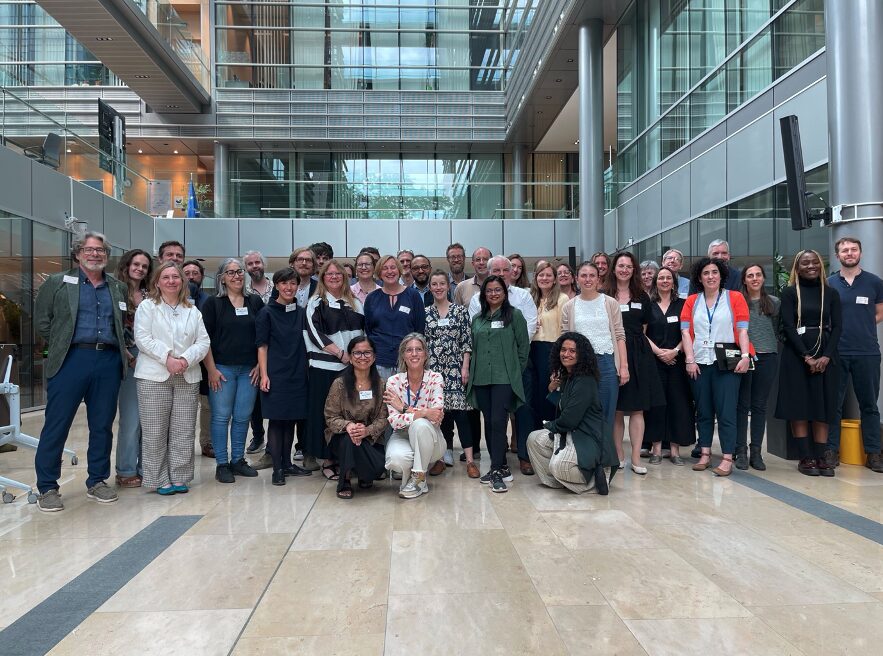The Climate-Health Cluster met in Brussels on 2 June at the European Commission Directorate-General for Research and Innovation (DG RTD).
The meeting brought together 30 participants, representing the six projects of the Cluster, BlueAdapt, CATALYSE, CLIMOS, HIGH Horizons, IDAlert, and TRIGGER, along with representatives from the European Commission.
During the morning session, all projects shared updates on their activities and progress, their efforts to develop interdisciplinary research, how they have integrated stakeholder engagement processes, and how they are generating policy recommendations based on scientific evidence. Discussions followed on shared challenges and open questions.
In the afternoon, participants collaborated in three thematic discussions aimed at formulating practical, collaborative action points, sharing insights, and identifying synergies among the projects.
Conversations were lively and focused on:
- Adaptation & mitigation (session prepared and moderated by TRIGGER & HIGH Horizons)
- Health inequalities (session prepared and moderated by BlueAdapt & IDAlert)
- Interdisciplinary collaboration between the health and climate science communities (session prepared and moderated by CATALYSE & CLIMOS)
The first thematic discussion took the form of a workshop, with attendees divided into small groups to explore six key topics:
- Capacity-building
- Governance of resilience
- Structural change
- Adaptation and mitigation synergies and trade-offs
- Mental health impacts of climate change
- Research as a catalyst
The second discussion also involved group work, this time focused on jointly addressing questions around health inequalities, the central theme of the second cluster policy brief currently in development. The insights and conclusions shared will help shape and inform the final brief.
The final thematic session was an open debate on collaboration models in research — from multidisciplinary to transdisciplinary approaches, and the inclusion of stakeholders and multiple sectors. The discussion also addressed how to tackle global challenges while recognising local diversity and the importance of involving relevant local actors from project design to implementation.
Bridging clusters: exploring synergies between Climate-Health and Planetary Health
On the next day, 3 June, the Climate-Health Cluster and the Planetary Health Cluster, which aims to better understand and address the complex links between environmental degradation and human health, convened in the same premises, or a dedicated meeting focused on strengthening mutual understanding of their respective projects, objectives, and expected outcomes. A key part of the discussion centered on how to enhance collective impact at tpolicy level.
Participants reflected on critical questions: How can we be more impactful as a cluster in the future, given the current context and its potential evolution? How can scientific evidence more effectively inform policy and decision-making?
Further meetings are planned to continue this dialogue and find common grounds in addressing the complex challenges at the intersection of climate and health.



